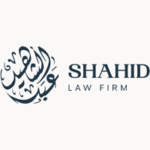-
What are the key rules/laws relevant to M&A and who are the key regulatory authorities?
In Greece, mergers and acquisitions (M&A) are governed by a combination of EU and national legislation, intended to ensure fair competition, clarity and adequate corporate governance. Τhe key laws relevant to M&A include 1. Law 4601/2019 which establishes the framework for mergers, demergers, and changes in company type and was passed to improve clarity in corporate restructuring as well as provide legal certainty by providing a coherent legal framework, 2. Law 5055/2023 which deals with corporate transformations regarding cross-border mergers as well as aligns the domestic regulatory framework with the 2121/2019 EU directive. 3. Law 5162/2024 which ensures tax neutrality as well as providing a tax framework regarding M&A. 4. Law 4548/2018 which regulates corporate law and establishes a framework for the operation of sociétés anonymes, 5. Law 3959/2011 which regulates the Competition Law in the Greek market and is upheld by the Hellenic Competition Commission. 6. Law 3190/1955 which governs Limited Liability Companies, 7. Law 4072/2012 which governs Private Companies 8. Law 3461/2006 which establishes a legal framework for acquisitions and regulates Public Takeover Bids. 9. Law 4706/2020 which regulates corporate governance on sociétés anonymes. 10. EU Merger regulation No. 139/2004 which establishes a threshold under which a turnover must be reviewed. In addition, general provisions of the Greek Civil Code and sector specific regulations are also involved in the M&A legal framework. Further, the key regulatory authorities for M&A in Greece include the 1. Hellenic Competition Commission (HCC), which ensures that the concentration established by a merger does not distort or decrease competition in the market, 2. The Hellenic Capital Market Commission (HCMC), which deals with disclosure, security and takeover bid regulations, to safeguard the investors’ equity, and 3. The Ministry of Development and Investments which is involved in specific M&A transactions to provide authorization in vulnerable sectors within particular regulatory frameworks.
-
What is the current state of the market?
The current state of the M&A market in Greece is distinguished by a robust recovery and increasing optimism. After a steady period in 2022 and 2023 due to global economic uncertainty, macroeconomic challenges, inflationary pressures and the impact of the pandemic, the market began to show signs of progress in 2024. Greece’s gradual economic growth, supported by EU funding, structural reforms, and a stable macroeconomic environment, has developed a more propitious landscape for M&A. Driving activity include sectors such as technology, energy, and real estate and finance, with companies concentrating on digital transformation, sustainability, and operational efficiency. Specifically, the financial sector is going through solidification as banks pursue mergers and partnerships to bolster their positions as a result to regulatory changes. Foreign involvement in Greek assets has also grown, contributing to the advancement in M&A activity. Compared to the careful approach observed in 2022, where fewer deals took place, the market in 2024 showed a resurgence in M&A activity. Although it is early to make conclusive predictions for 2025, the encouraging patterns from 2024 suggest that M&A activity is expected to continue to grow.
-
Which market sectors have been particularly active recently?
As mentioned above, in recent years, several sectors in Greece have experienced a surge in M&A activity, mirroring the country’s economic transformation and increasing desirability to international investors. The energy sector, particularly renewable energy, has been greatly active, with leading figures like Motor Oil and PPC extending their holdings through acquisitions of green energy assets, such as wind and solar farms. The technology sector has also seen vigorous M&A activity, shown by Cadence Group’s acquisition of BETA CAE Systems, significantly expanding the tech industry in Greece. Additionally, the infrastructure and real estate sectors have marked significant deals, such as the €3.3 billion lease agreement for the Attica Motorway toll highway and Blackstone’s investment in southern European hotels, including in Greece. Finally, the financial sector, as mentioned above, has been going through stabilization, and financial restructuring shown through mergers, partnerships, and privatization.
-
What do you believe will be the three most significant factors influencing M&A activity over the next 2 years?
1. Economic Recovery and Growth Prospects
Greece is recovering economically from the pandemic, with strong growth expected. The anticipated restoration of investment grade will open new investment opportunities for funds previously restricted by their Articles of Association. Significant investments from the EU recovery fund are being directed towards digital transformation, renewable energy, and infrastructure. As these sectors expand, mergers and acquisitions are likely to increase, attracting both domestic and foreign investors.
2. Technological Advancements and Digital Transformation
Greece is focusing on digital transformation in fintech, e-commerce, and software development. This modernization could increase M&A activity, with larger firms acquiring smaller tech companies for their advanced technologies. Greek tech startups, especially in fintech, medtech, and AI, are attracting venture capital and private equity interest. This influx might lead to more consolidation and M&A deals as firms aim to leverage technology for competitive advantage.
3. New EU legislation on cross-border transactions and foreign investments
Greece’s position within the European Union influences its attractiveness for foreign investment. The new Law 5055/2023 on cross-border transactions provides the legal framework for corporate transformations involving companies from different jurisdictions. The Foreign Subsidies Regulation (EU) 2022/2560 aims to establish a harmonized framework to address distortions caused by foreign subsidies, ensuring a level playing field in the internal market. Furthermore, Greece has been attracting foreign direct investment from Europe, Asia, and the U.S. Companies seeking to expand their presence in Southern Europe may consider Greece as an entry point, especially in the tourism, technology, and infrastructure sectors. Policy adjustments or incentives in these areas could further influence M&A activity.
-
What are the key means of effecting the acquisition of a publicly traded company?
In Greece, there are a few key methods that are used to effect the acquisition of publicly traded companies, each governed by local regulations to guarantee impartiality and transparency. One of the primary means is a public takeover bid, which can be voluntary or mandatory. A voluntary takeover bid is initiated by an investor seeking to attain a controlling stake, requiring compliance with the Greek Capital Market Commission (HCMC) regulations, including disclosure requirements and fair pricing rules. A mandatory takeover bid is activated when an investor acquires more than 30% of a company’s voting rights, and the bid must be extended to all shareholders at a fair price, conforming to HCMC guidelines. Another method is the acquisition of shares on the Athens Stock Exchange (ATHEX). Investors can directly purchase shares to build a stake in a company, but subject to certain thresholds (e.g., 5%, 10%, or 20%). Once these thresholds are reached, disclosure obligations under Greek securities laws apply. Mergers and consolidations are also common, incorporating the combination of two companies, often through a share swap or cash payment, and requiring shareholder and regulatory approvals. In addition, indirect acquisitions can occur via asset purchases or subsidiary takeovers, especially in sectors like real estate, with transfer taxes and VAT considerations. These methods are regulated by Greek law, ensuring a transparent process.
-
What information relating to a target company is publicly available and to what extent is a target company obliged to disclose diligence related information to a potential acquirer?
In Greece, all companies are registered to the Greek General Commercial Registry (GEMI) which provides public access to company data, including incorporation details, legal status, shareholders, management, and financial statements. Other than that, information regarding a company can be found through the company’s website, the Greek official gazette, where any important corporate decisions such as mergers, acquisitions, or amendments to company status may be published, or through the tax authorities, as the law requires some public records related to a company’s tax status or any pending tax disputes to be published, after assessment by the Ministry of Finance and tax authorities.
During the due diligence process, the target company is not legally obligated to provide detailed information unless required under specific circumstances, or in response to regulatory authorities’ requests. Disclosure of sensitive or material information is typically subject to negotiation between the parties involved, with confidentiality agreements often required to protect the interests of both sides. The target company’s management is not required to voluntarily disclose specific details, and such information is typically provided after a non-disclosure agreement (NDA) has been signed.
-
To what level of detail is due diligence customarily undertaken?
According to Article 11, Law 4601/2019, the shareholders of any company involved in a merger are entitled to inspect 5 documents for a period of one month before the date of the General Assembly which is to decide on the merger. These documents are:
- the draft merger agreement,
- the annual financial statements and the annual management reports of the board of directors or managers of each of the companies participating in the merger for the last three (3) years,
- the balance sheet drawn up on a date not earlier than the first day of the third month before the date of the draft merger agreement, if the latest annual financial statements refer to a period of at least six (6) months before the date of the draft merger agreement. The balance sheet shall include at least a balance sheet, a profit and loss account and a summary of the accounting methods used in their preparation,
- the reports of the boards of directors or managers of each of the companies participating in the merger, which explain and justify from a financial and legal point of view the draft merger agreement and in particular the exchange ratio of the shareholdings (Article 9, Law 4601/2019).
- the expert report, drawn up by one or more independent experts, acting on behalf of each of the merging companies (Article 10, Law 4601/2019).
In addition to legally required documents, buyers typically request financial, tax, and operational due diligence to assess the target company’s efficiency, business model, market position, workforce structure. Typically, legal and financial due diligence is the most in-depth, but specialized sectors may demand more focus on operational and regulatory aspects.
-
What are the key decision-making bodies within a target company and what approval rights do shareholders have?
According to Greek legislation, the key decision-making bodies are the Board of Directors and the shareholders’ General Assembly.
The General Assembly of Shareholders is responsible for approving major actions such as mergers, demergers, asset sales, and share issuance. The Board of Directors manages the company and oversees transactions. Voting requirements for shareholder approval are stated in the company’s articles of association and depend on the transaction type and company structure. Shareholders, including minority shareholders, have rights to approve or reject transactions and may demand a fair price for their shares during mergers or acquisitions.
-
What are the duties of the directors and controlling shareholders of a target company?
Directors must act with care, loyalty, and transparency, ensuring that the interests of the company and all its shareholders are protected. More specifically, directors have the duty of care and diligence, as they must review the terms of the transaction, evaluate the potential income and ensure that the transaction is in the company’s long-term interest. The directors are also responsible for the information provided to the shareholders, as they ensure that shareholders are fully informed about the details of the M&A transaction, including its terms, potential risks, and benefits. This involves providing shareholders with a detailed report about the merger or acquisition, and addressing any questions or concerns raised by the shareholders. They also must disclose all relevant information, including independent expert reports, if applicable, so that shareholders can make an informed decision at the General Meeting. Directors of listed companies must follow corporate governance rules, aiming for long-term value and the company’s interest. During a public bid, they must let shareholders evaluate it and cannot pursue personal interests unless aligned with the company. The BoD of a target company can seek alternative bids but cannot act to withdraw or cancel the bid without GA approval. According to Article 19, Law 4601/2019, the directors of the acquiring and the absorbed company are liable to the shareholders or partners of their company for any damage suffered by the latter due to a culpable act or omission of the former, which constitutes a breach of their duties during the preparation and implementation of the merger.
Controlling shareholders are those holding a majority of shares or otherwise exercising control over the company. Controlling shareholders must act in good faith, ensuring that their actions are not designed to unfairly benefit themselves at the expense of minority shareholders. In the event of a takeover or a significant transaction, controlling shareholders are required to act in a way that respects the interests of all shareholders, including providing fair treatment to minority shareholders. In the context of M&A, if the controlling shareholders are selling their shares or transferring control of the company, they must ensure that the consideration offered for the transaction is fair to all shareholders.
-
Do employees/other stakeholders have any specific approval, consultation or other rights?
Employees: Under the EU’s 2002/14/EC Directive and Greek labor law, employers are required to consult employees or their representatives about any significant changes that might affect them, including mergers and acquisitions. Employees do not have direct approval rights over the transaction, but they may express concerns or opinions through employee representatives during the consultation process. If the target company is listed on the Athens Stock Exchange, employees may have access to information through publicly available shareholder communications, annual reports, or disclosures about the deal. While employees do not have direct voting rights, they are stakeholders in the company’s overall health and profitability and may take an interest in the potential effects of the deal on their employment conditions. Additionally, according to Article 12, Law 4601/2019, in all cases of corporate transformations, employees shall be accorded with the protection granted to them by the provisions on change of employer. This means that all existing rights and obligations of the transferor under an employment contract/relationship are transferred to the successor.
Shareholders: While other stakeholders like suppliers and customers generally do not have approval or consultation rights under Greek M&A law, they may still be affected by the transaction and are entitled to information if their contracts are impacted. As outlined earlier, the approval of shareholders is required for significant M&A transactions such as mergers. Creditors may also have a say if the transaction materially affects the company’s financial obligations. This is especially true if these changes impact the company’s ability to repay debts or affect creditor security interests.
-
To what degree is conditionality an accepted market feature on acquisitions?
The Greek Civil Code outlines the use of conditionality, primarily governed by contract law, competition law, and sector-specific regulations. Conditions generally include regulatory approvals, financing, shareholder approval, material adverse changes, and completion of due diligence. Specific regulations, such as Greek Competition Law (Law 3959/2011) and relevant European Union regulations (e.g., EC Merger Regulation), also affect conditionality, particularly regarding market dominance concerns and regulatory approval.
-
What steps can an acquirer of a target company take to secure deal exclusivity?
Securing deal exclusivity in acquisitions under Greek law generally involves negotiating and formalizing exclusivity clauses within letters of intent, memorandums of understanding, or binding exclusivity agreements. The acquirer can ensure that the target company agrees not to negotiate with other potential buyers during a defined exclusivity period, which allows the acquirer to conduct due diligence and negotiate the final terms of the transaction without the risk of competing bids.
-
What other deal protection and costs coverage mechanisms are most frequently used by acquirers?
Acquirers implement various deal protection and cost coverage mechanisms, such as letters of credit. These ensure payments are both timely and accurate through a bank guarantee.
Letters of guarantee and break-up fees—also known as termination fees—serve as penalties in M&A transactions if the seller withdraws, thereby compensating the purchaser.
Furthermore, limitations are based on general principles of law, notably the abusive exercise of rights as defined in Article 281 of the Greek Civil Code.
-
Which forms of consideration are most commonly used?
For shares in private companies, cash is the most common form of consideration.
In companies listed on the Athens Exchange, the consideration may be in the form of securities, shares, cash, or a combination thereof. In mandatory takeover bids, the consideration, according to law 3461/2006, is always in cash per share. The bidder is required to ensure sufficient funding from a credit institution in Greece or another EU member state. The maximum permitted cash payment in mergers is 10% of the nominal value of shares. In voluntary bids, the bidder may provide payment in the form of cash or securities, or both.
-
At what ownership levels by an acquirer is public disclosure required (whether acquiring a target company as a whole or a minority stake)?
Regarding deal disclosure for listed companies, it is essential to disclose pertinent information to maintain transparency. Such disclosure may be postponed while communicating with the Hellenic Capital Market Commission (HCMC), provided that all requirements under Market Abuse Regulation 596/2004 are satisfied. In the event of a public bid submission, both the HCMC and the Board of Directors of the target company must receive written notification. Should a shareholder’s voting rights in a listed company reach or exceed the thresholds of 5%, 10%, 15%, 20%, 25%, 1/3, 50%, and 2/3 due to an acquisition or disposal of shares, the issuer should be duly informed of the resulting percentage of voting rights held.
It should be noted that announcements are not required for unlisted companies.
-
At what stage of negotiation is public disclosure required or customary?
In a potential acquisition of a private company there is no obligation to disclose the negotiation of an acquisition. The agreement’s conditions will govern disclosure.
In Greek M&A transactions, public disclosure is typically required when the agreement is signed, especially if the target is a publicly traded company, as per the regulations of the Greek Capital Markets Commission and Athens Stock Exchange. Disclosure is also necessary if the deal requires regulatory approval from authorities like the Hellenic Competition Commission or the European Commission, particularly in cases of anti-competitive concerns. Concerning companies listed in Greece, Law 3340/2005 on market abuse and Decision No. 3/347/12.7.2005 issued by the Board of Directors of the Hellenic Capital Market Commission (HCMC) stipulates that these companies must disclose any privileged information to the public. The HCMC decision includes a list of examples of information that may be regarded as privileged.
-
Is there any maximum time period for negotiations or due diligence?
According to Greek legal framework, there is no stipulated maximum time frame for negotiations or due diligence. Instead, the duration is determined by the complexity of the transaction and the mutual agreement between the involved parties.
In some M&A transactions in Greece, especially those involving significant market share or companies in regulated industries, regulatory bodies may need to approve the deal. The Greek Competition Commission (Hellenic Competition Commission) may assess the potential impact on competition, and this process can extend the overall timeframe.
-
Is there any maximum time period between announcement of a transaction and completion of a transaction?
Under Greek law, there isn’t a specific maximum time period mandated for the completion of a transaction after the announcement, but the law does establish certain requirements regarding timelines in the context of mergers and acquisitions (M&A). The process is governed by practical factors such as regulatory approvals, which can take several months, and the internal processes of the parties involved. The overall time frame will depend on the complexity of the transaction, the need for regulatory clearances and any potential legal or shareholder disputes. If the M&A involves a public takeover bid, the process must comply with the EU’s rules on public offers (Directive 2004/25/EC).
-
Are there any circumstances where a minimum price may be set for the shares in a target company?
In Greek M&A transactions, minimum price clauses can arise due to regulatory, contractual, or negotiated reasons.
As stipulated in Article 9 of Law 3461/2006, a mandatory takeover bid requires the acquirer’s offered price to adhere to specific minimum criteria. According to these provisions, when an acquirer proposes to purchase shares of a listed company, the offer must present reasonable and equitable terms, specifically a cash price per share that is no lower than:
(a) the average stock exchange price of the transferable security that is the subject of the mandatory public offer, during the six (6) months preceding the date on which the offeror became obliged to submit a public offer, nor
(b) the highest price at which the obligated person or any of the persons acting on its behalf or in coordination with it acquired, during the twelve (12) months preceding the date on which the offeror became obliged to submit a public offer, transferable securities that are the subject of the public offer.
-
Is it possible for target companies to provide financial assistance?
According to article 51 of Law 4548/2018 (as amended with law 5178/2025) public limited companies are prohibited from providing financial assistance to third parties for the acquisition of their own shares.
There are conditions under which a company may provide financial assistance to third parties.
Under the responsibility of the board of directors, financial assistance shall be provided only at fair market conditions, approved by the GA with an increased quorum and majority
Exceptions to the rule of prohibition are regulated in paragraph 4 of Article 51.
There are two exceptions to the general prohibition rule : financial support from credit and financial institutions during their regular operations, and financial support from the company to its employees or those of an associated company within the same group. Both exceptions are valid only if the financial assistance does not decrease the company’s net assets below the amount stated in Article 159, paragraph 1 of the Codified Law.
-
Which governing law is customarily used on acquisitions?
In Greece, the governing law customarily used for acquisitions, particularly in the context of mergers and acquisitions (M&A) transactions, is Greek law. This is especially true for transactions involving Greek companies or assets located in Greece. The key legal framework governing such transactions includes:
- Greek Civil Code
- Greek Company Law
- Greek Competition Law
- Capital Markets Law
- Tax Legislation
For cross-border transactions, parties may choose a foreign governing law, but Greek law will still apply to certain aspects, such as the transfer of shares in a Greek company or the registration of assets located in Greece. Additionally, the transaction may need to comply with EU regulations, particularly in areas like competition law.
-
What public-facing documentation must a buyer produce in connection with the acquisition of a listed company?
In Greece, the acquisition of a listed company involves several regulatory requirements and public-facing documentation to ensure transparency and compliance with the Hellenic Capital Market Commission (HCMC) and other relevant authorities:
- Public Offer Document (Prospectus)
- Announcement of the Offer
- Information Memorandum
- Acceptance Form
- Post-Offer Disclosure
- Squeeze-Out and Sell-Out Notices
- Regulatory Filings
- Corporate Actions Documentation
- Anti-Money Laundering (AML) and Know Your Customer (KYC) Documentation
- Competition Law Filings
- Employee Information and Consultation
- Tax Documentation
- Environmental and Social Governance (ESG) Disclosures
- Post-Acquisition Reports
- Shareholder Agreements and Other Contracts
- Disclosure of Material Changes
- Final Settlement and Payment Documentation
- Post-Acquisition Integration Plan
- Disclosure of Litigation or Regulatory Actions
- Corporate Governance Disclosures
-
What formalities are required in order to document a transfer of shares, including any local transfer taxes or duties?
In Greece, the transfer of shares in a company involves several formalities, including documentation, potential taxes, and duties. Below is an overview of the key steps and requirements:
- Share Transfer Agreement
- Approval from the Company
- Update of the Shareholders’ Register
- Notification to the General Commercial Registry (GEMI)
- Taxation
- Notarization
- Banking and Payment Formalities
- Compliance with Anti-Money Laundering (AML) Regulations
- Corporate Resolutions
- Other Considerations
-
Are hostile acquisitions a common feature?
Hostile acquisitions, where an acquirer attempts to take control of a target company without the consent of its board of directors, are relatively rare in Greece compared to more developed markets. These transactions are typically friendly and involve negotiations between the acquirer and the target company’s board. The legal, cultural, and economic environment in Greece makes hostile takeovers challenging and relatively rare. Several factors contribute to this:
- Family-Owned Businesses – Small Capital Markets
- Shareholder Rights – Defensive Measures – Regulatory Approval
- Resistance to Hostile Takeovers
- Economic Instability
- Increase in M&A Activity: While hostile takeovers remain rare, there has been an increase in merger and acquisition (M&A) activity in Greece, particularly in sectors like banking, energy, and telecommunications. However, these transactions are typically friendly and involve negotiations between the parties.
- Banking Sector: The Greek banking sector has seen significant consolidation, but these transactions have generally been government-led or negotiated rather than hostile.
- Energy Sector: There have been some high-profile acquisitions in the energy sector, but these have also been negotiated deals.
-
What protections do directors of a target company have against a hostile approach?
In Greece, directors of a target company facing a hostile takeover approach have several protections and tools at their disposal to defend the company’s interests. These protections are primarily governed by Greek corporate law, securities regulations, and the company’s articles of association.
- Fiduciary Duties and Shareholder Interests
- Poison Pill Strategies. For example:
- Issuing new shares to dilute the bidder’s potential stake.
- Granting existing shareholders pre-emptive rights to purchase new shares.
- White Knight Defense
- Asset Restructuring
- Shareholder Rights Plan
- Regulatory Approvals
- Legal Challenges
- Communication with Shareholders
- Staggered Board
- Golden Parachutes
- Compliance with Takeover Law
- Court Injunctions
- Employee Support
- Defensive Acquisitions
-
Are there circumstances where a buyer may have to make a mandatory or compulsory offer for a target company?
Yes, in Greece, there are circumstances where a buyer may be required to make a «mandatory or compulsory offer» for a target company. These rules are primarily governed by Greek Law 3461/2006, which transposes the EU Takeover Directive (2004/25/EC) into Greek law and are enforced by the Hellenic Capital Market Commission (HCMC). The mandatory offer requirement is designed to protect minority shareholders and ensure fair treatment in the event of a change in control. A buyer is required to make a mandatory offer for a target company if they acquire a controlling stake (30% or more of the voting rights) or increase their existing stake beyond certain thresholds. However, there are exemptions and specific conditions that may apply, and the HCMC plays a key role in supervising and enforcing these requirements.
- Acquisition of a Controlling Stake:
- A mandatory offer is triggered when a buyer acquires shares that result in them holding «30% or more» of the voting rights in a publicly traded company (or a lower threshold if specified in the company’s articles of association). This threshold applies to both direct and indirect acquisitions (e.g. through subsidiaries or other entities).
- Creeping Acquisitions:
- If a buyer already holds between 30% and 50% of the voting rights and acquires additional shares that increase their holding by more than «3% within a 12-month period», they must make a mandatory offer for the remaining shares.
- Acquisition of Control Through Other Means:
- A mandatory offer may also be required if a buyer gains control of the company through means other than a direct share purchase, such as:
- Acquiring control of a parent company that holds a controlling stake in the target.
- Entering into agreements that confer control (e.g., voting agreements or joint ventures).
- Change of Control in a Parent Company:
- If a change of control occurs in a parent company that indirectly controls the target company, this may also trigger a mandatory offer for the target.
Key Features of a Mandatory Offer:
- Price Requirements:
- The offer price must be at least equal to the «highest price paid by the buyer for the same class of shares» in the 12 months preceding the offer. If no such purchases were made, the price must be determined based on the market value of the shares.
- The HCMC may require an independent valuation to ensure the price is fair.
- Scope of the Offer:
- The offer must be extended to «all shareholders» of the target company and cover «all classes of shares» with voting rights.
- Financing Requirements:
- The buyer must demonstrate that they have sufficient financial resources to fulfill the offer. This often involves providing a bank guarantee or other proof of funds.
- Approval and Supervision:
- The mandatory offer must be approved by the HCMC before it is launched. The HCMC ensures compliance with Greek takeover rules and protects the interests of minority shareholders.
Exemptions to the Mandatory Offer Requirement:
There are certain circumstances where a mandatory offer may not be required, including:
- Voluntary Offer:
- If the buyer makes a «voluntary offer» for all shares of the company and the offer is accepted by shareholders representing at least 50% of the voting rights, a mandatory offer may not be required.
- Rescue Operations:
- In cases where the target company is in financial distress and the acquisition is part of a rescue operation, the HCMC may waive the mandatory offer requirement.
- Intra-Group Transfers:
- Transfers of shares within the same group of companies may be exempt from the mandatory offer requirement.
- Acquisitions Approved by Shareholders:
- If the acquisition of the controlling stake is approved by a resolution of the target company’s shareholders, the mandatory offer requirement may not apply.
Consequences of Non-Compliance:
- Failure to comply with the mandatory offer rules can result in significant penalties, including fines imposed by the HCMC.
- The buyer may also be required to make a retroactive offer to shareholders.
- Acquisition of a Controlling Stake:
-
If an acquirer does not obtain full control of a target company, what rights do minority shareholders enjoy?
In Greece, minority shareholders in a company are afforded several rights and protections under Greek corporate law (Law 4548/2018, as amended) and securities regulations. These rights are designed to ensure that minority shareholders are treated fairly and have a voice in the company’s governance, especially in situations where an acquirer does not obtain full control of the target company. Below are the key rights enjoyed by minority shareholders in Greece:
In Greece, minority shareholders enjoy a robust set of rights designed to protect their interests and ensure fair treatment, even when an acquirer does not obtain full control of the target company. These rights include participation in decision-making, access to information, legal remedies for unfair treatment, and exit options in certain circumstances. However, the effectiveness of these rights often depends on the specific provisions of the company’s articles of association and the willingness of minority shareholders to actively enforce their rights.
-
Is a mechanism available to compulsorily acquire minority stakes?
Yes, a mechanism is available in Greece to «compulsorily acquire minority stakes» in certain circumstances. This mechanism is generally used in the context of a «takeover» where the acquirer has successfully gained a significant controlling stake in a listed company. Under both «Greek law» and «EU law» (specifically the «EU Takeover Directive»), this mechanism is referred to as a «squeeze-out».
In Greece, the «squeeze-out» mechanism allows an acquirer who has obtained a controlling stake (typically «90% or more») in a target company to compulsorily acquire the remaining minority shares. This is aimed at enabling the acquirer to take full control of the company, without being held back by minority shareholders who might not wish to sell their shares.
Summary of Key Points:
- An acquirer who reaches «90%» of the voting rights in a listed company may initiate a squeeze-out to compulsorily acquire minority shares.
- The price paid to minority shareholders must be the same as the one offered to the majority shareholders in the original tender offer.
- Minority shareholders can challenge the price or the process in court if they believe it is unfair.
- The squeeze-out process involves formal notifications, regulatory approval, and the right for minority shareholders to seek legal recourse if they feel their rights are violated.
In conclusion, the «squeeze-out» mechanism in Greece provides a way for acquirers to gain full control of a target company by compulsorily acquiring the minority shareholders’ stakes once they reach 90% ownership. This mechanism is designed to ensure that minority shareholders receive a fair exit price and are treated equally to the majority in the takeover process. However, they retain the right to challenge the fairness of the offer and the price through legal channels.
Greece: Mergers & Acquisitions
This country-specific Q&A provides an overview of Mergers & Acquisitions laws and regulations applicable in Greece.
-
What are the key rules/laws relevant to M&A and who are the key regulatory authorities?
-
What is the current state of the market?
-
Which market sectors have been particularly active recently?
-
What do you believe will be the three most significant factors influencing M&A activity over the next 2 years?
-
What are the key means of effecting the acquisition of a publicly traded company?
-
What information relating to a target company is publicly available and to what extent is a target company obliged to disclose diligence related information to a potential acquirer?
-
To what level of detail is due diligence customarily undertaken?
-
What are the key decision-making bodies within a target company and what approval rights do shareholders have?
-
What are the duties of the directors and controlling shareholders of a target company?
-
Do employees/other stakeholders have any specific approval, consultation or other rights?
-
To what degree is conditionality an accepted market feature on acquisitions?
-
What steps can an acquirer of a target company take to secure deal exclusivity?
-
What other deal protection and costs coverage mechanisms are most frequently used by acquirers?
-
Which forms of consideration are most commonly used?
-
At what ownership levels by an acquirer is public disclosure required (whether acquiring a target company as a whole or a minority stake)?
-
At what stage of negotiation is public disclosure required or customary?
-
Is there any maximum time period for negotiations or due diligence?
-
Is there any maximum time period between announcement of a transaction and completion of a transaction?
-
Are there any circumstances where a minimum price may be set for the shares in a target company?
-
Is it possible for target companies to provide financial assistance?
-
Which governing law is customarily used on acquisitions?
-
What public-facing documentation must a buyer produce in connection with the acquisition of a listed company?
-
What formalities are required in order to document a transfer of shares, including any local transfer taxes or duties?
-
Are hostile acquisitions a common feature?
-
What protections do directors of a target company have against a hostile approach?
-
Are there circumstances where a buyer may have to make a mandatory or compulsory offer for a target company?
-
If an acquirer does not obtain full control of a target company, what rights do minority shareholders enjoy?
-
Is a mechanism available to compulsorily acquire minority stakes?





























